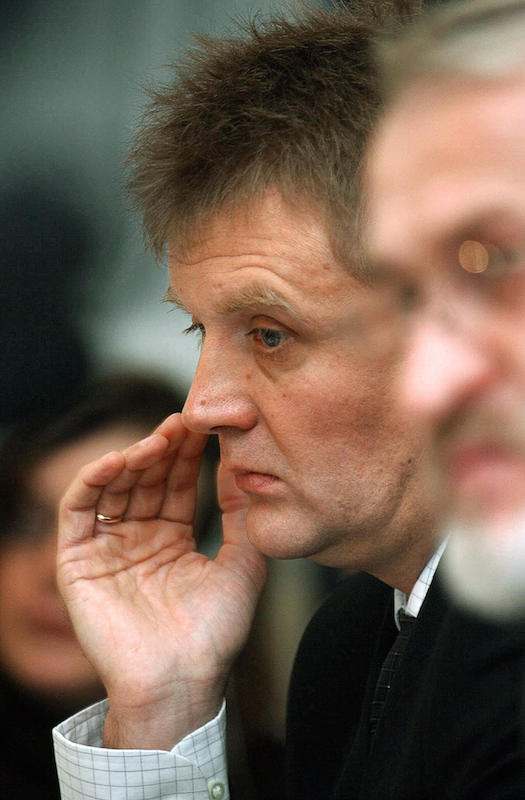
Alexander Litvinenko said on his deathbed that Russian President Vladimir Putin had ordered his death by poisoning and now, almost a decade later, a British judge has become the first official to say he was probably right.
In November of 2006, the Russian exile drank tea laced with polonium-210, a hard-to-detect, highly radioactive isotope that destroyed his body from the inside in a matter of days. On Thursday, Judge Robert Owen ruled that Russia’s Federal Security Service (FSB) was almost certainly to blame for poisoning Litvinenko, and the operation was “probably approved” by Putin, who was then in the second term of his presidency.
But who was Litvinenko and why might the FSB have wanted him dead?
The answer requires a look at the complicated state of Russia’s security services in the mid-1990s, as Russia began its messy journey from post-communist republic to modern petrostate.
Litvinenko began his career in the Soviet Union’s interior ministry in 1980, the BBC reports, and became a KGB agent shortly before the fall of communism. When the KGB became the FSB, he rose to the rank of lieutenant colonel and worked in the agency’s organized-crime unit, as TIME’s J.F.O. McAllister reported in December 2006. It was a boom time for such investigative work—the privatization of the nation’s industry had created a tangled web of criminals, billionaires and corrupt officials—but also a dangerous one.
Litvinenko first stirred Putin’s anger in 1998, when he claimed in a press conference that many of the FSB’s top officers were corrupt. The stunt—which may have been masterminded by a billionaire whom Litvinenko also said he’d been ordered to kill—was said to have infuriated Putin, who was then the agency’s chief. The FSB arrested Litvnenko on suspicion of corruption the following year, but they couldn’t make the charges stick.
When Putin succeeded Boris Yeltsin in 2000, Litvinenko went into exile in London. There, he worked for that same billionaire whose life he said he’d spared—Boris Berezovsky, who had also fled Russia, amid fraud charges, and then dedicated himself to bringing down the new president. Litvinenko likewise became a highly vocal critic of his former boss, as TIME reported in 2006:
Litvinenko, it is fair to say, didn’t like Putin. Last summer he claimed in a letter posted on the Internet that the President was a habitual pedophile. Litvinenko also contended that Putin had been on the take from Mafia groups for years and that to advance his presidential ambitions, he had directed FSB officers to blow up apartment buildings in Moscow in 1999, killing more than 300 people—then pinning the outrage on Chechen rebels. (Putin has vehemently denied any involvement; Russian courts found a group of Chechens guilty of the crimes.)”
In the weeks before Litvinenko’s death, he had been investigating the murder of journalist Anna Politkovskaya, who had opposed Putin’s second military campaign in the Chechens and was gunned down in Moscow on Oct. 10 — coincidentally, Vladimir Putin’s birthday.
Nonetheless, the notion that the president would have ordered the execution of a minor dissident was laughable to some, who pointed out that Litvinenko had made plenty of enemies in the FSB and elsewhere. Litvinenko had taken British citizenship weeks before his death, and Milton Bearden, a former CIA spy, told TIME that Putin would not have been so stupid as to risk the killing of a British citizen on U.K. soil. “Take a deep breath,” Bearden said, “and take a look at Putin and say, ‘Is he stupid or insane?'”
More Must-Reads from TIME
- Cybersecurity Experts Are Sounding the Alarm on DOGE
- Meet the 2025 Women of the Year
- The Harsh Truth About Disability Inclusion
- Why Do More Young Adults Have Cancer?
- Colman Domingo Leads With Radical Love
- How to Get Better at Doing Things Alone
- Michelle Zauner Stares Down the Darkness
Contact us at letters@time.com